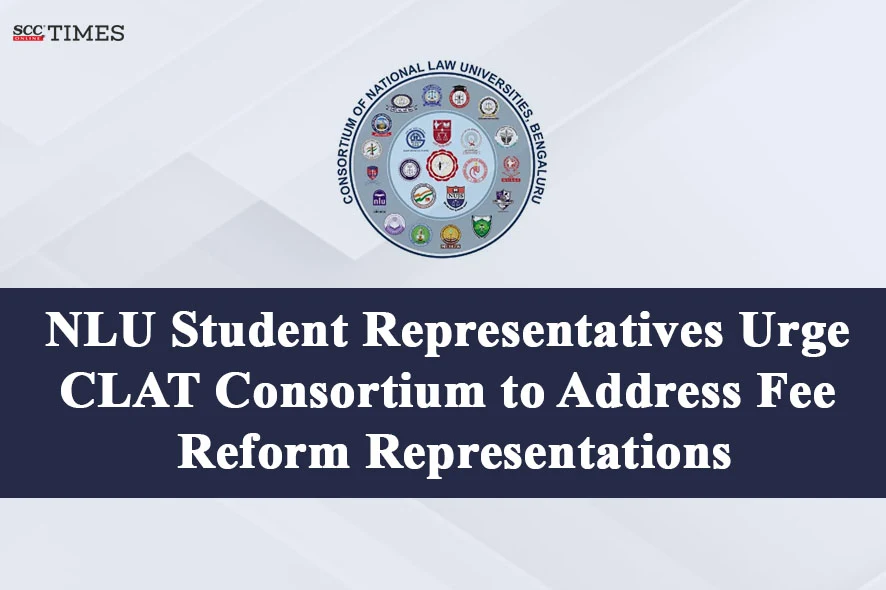The student representatives from National Law Universities (NLUs) across India express deep concern regarding the continued absence of any official response from the Consortium of National Law Universities (CLAT Consortium) to the series of representations submitted concerning the CLAT fee structure.
Over the past year, multiple communications have been made by student bodies, highlighting serious issues in the present CLAT application and counselling fee framework. These representations emphasise that the existing structure imposes disproportionate financial burdens on students from economically weaker and marginalised backgrounds and thereby hinders equal access to legal education.
The chronology of these communications is as follows:
-
November 16, 2024: The first representation detailed the financial and procedural barriers resulting from the current counselling mechanism, particularly the non-refundable confirmation fee of ₹20,000 and the counselling fee of ₹30,000 (₹20,000 for reserved category students).
-
July 28, 2025: A second representation was jointly submitted to the Consortium, the University Grants Commission (UGC), the Bar Council of India (BCI), and the Ministry of Law and Justice, urging reconsideration of the application fee (₹4,000 for general and ₹3,500 for reserved category applicants) and recommending the introduction of need-based waivers and a more equitable counselling structure. This submission was accompanied by an online petition endorsed by over 1,800 stakeholders from across the legal education community.
-
September 2, 2025: A formal request was submitted for a virtual meeting with the Executive Body of the Consortium, proposing a constructive dialogue with nominated student representatives from NLUs.
Despite these repeated and well-substantiated communications, the Consortium has not issued any acknowledgement or response to date. This continued inaction has caused considerable concern within the student community, given that the representations pertain to matters of equity, inclusivity, and accessibility in legal education.
The Cross-NLU Initiative respectfully reiterates that these submissions were made in good faith, supported by comparative data and legal reasoning, with the sole objective of promoting a fair and transparent framework for the conduct of the CLAT examination and admissions process.
The student representatives, therefore, urge the Consortium to:
-
Formally acknowledge and respond to the representations submitted on November 16, 2024, July 28, 2025, and September 2, 2025.
-
Initiate a consultative process with student representatives to deliberate upon possible reforms to the fee structure, in keeping with the principles of equity and transparency.
The Cross-NLU Initiative reaffirms its collective commitment to advancing accessible and inclusive legal education in India and expresses hope that the Consortium will address these concerns in a timely and constructive manner.
Issued by:
Student bodies of National Law Universities.



Please remove QT from clat and please set a boundaries for gk
Yes what about weaker section people the high fees disrupt their financial stability it’s need to reform the fee of nlu